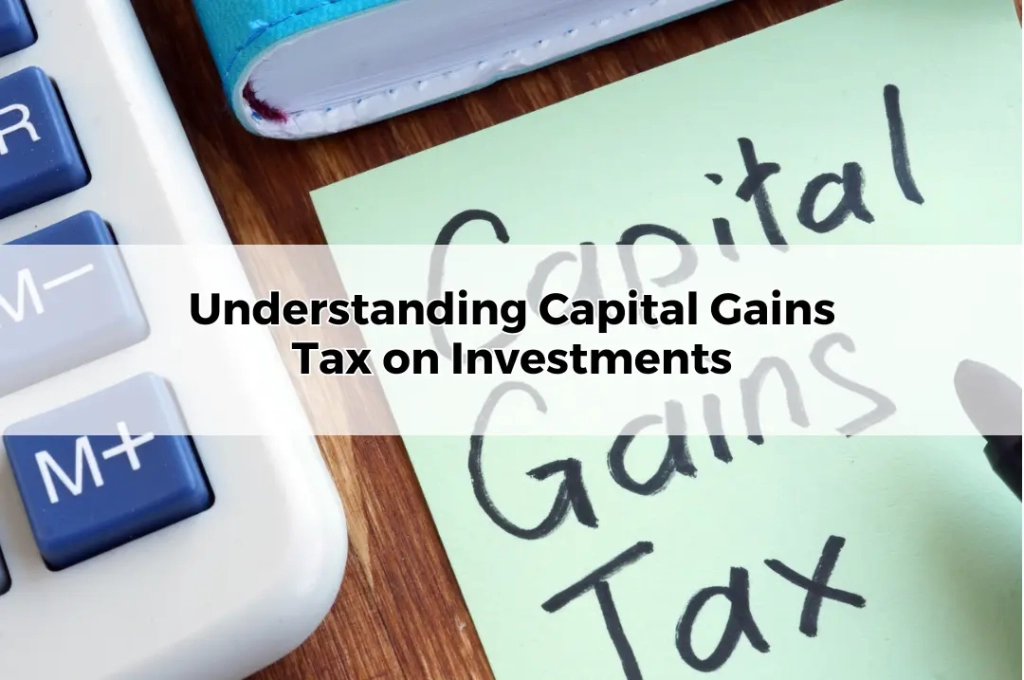Understanding Capital Gains Tax on Investments
Table of Contents
ToggleCapital Gains Tax (CGT) is a crucial aspect of the Australian taxation system that significantly impacts investment strategies and financial planning. Whether you’re investing in property, shares, or managed funds, understanding CGT is essential for making informed decisions that align with your long-term financial goals. As a key element in the realm of wealth management, CGT can influence the timing of asset sales, portfolio adjustments, and overall investment strategy. For those seeking to optimise their financial outcomes, particularly in Toowoomba, working with a knowledgeable financial adviser is invaluable.
What is Capital Gains Tax?
Capital Gains Tax is a tax levied on the profit realised from the sale of an asset that has appreciated in value. In Australia, CGT is not a separate tax but is part of your income tax, meaning the gain is added to your assessable income in the year the asset is sold. Assets subject to CGT include shares, real estate (excluding your primary residence under certain conditions), managed funds, and collectibles. Understanding which assets are subject to CGT is the first step in effective financial planning and tax management.
How Capital Gains are Calculated
To calculate your capital gain, you first need to determine the cost base of the asset. The cost base includes the purchase price of the asset, along with any associated costs such as brokerage fees, stamp duty, and legal fees. The capital gain is then calculated by subtracting the cost base from the sale price of the asset. If the sale price is lower than the cost base, a capital loss is incurred. It’s important to accurately calculate these figures to determine your CGT liability correctly.
CGT Events
CGT is triggered by specific events, known as CGT events, which include the sale, exchange, or gifting of an asset. Each event has implications for your tax obligations. For example, selling shares, transferring property, or even receiving compensation for the loss or destruction of an asset can trigger a CGT event. Understanding these events is essential for managing your tax liabilities effectively and planning the timing of your transactions.
CGT Discount
Australian tax law provides a 50% discount on the capital gain for individuals who have held the asset for more than 12 months. This discount effectively halves the taxable portion of the gain, making it a significant incentive for long-term investment strategies. The discount also applies to Self-Managed Super Funds (SMSFs), though at a reduced rate of 33.3%. To maximise the benefit of this discount, it’s crucial to consider the timing of your asset sales carefully.
CGT on Different Types of Investments
Different types of investments attract different CGT considerations. For example, shares and equities are subject to CGT when sold, with the gain or loss calculated based on the cost base and sale price. Real estate investments, particularly those not considered your primary residence, also attract CGT, with specific rules around renovations and improvements impacting the cost base. Managed funds and ETFs present unique challenges, as capital gains within the fund are distributed to investors, potentially triggering CGT even if you haven’t sold your units.
Holding Period and Its Impact on CGT
The holding period of an asset plays a crucial role in determining your CGT liability. To qualify for the 50% CGT discount, you must hold the asset for more than 12 months. This rule encourages long-term investment, as the tax burden is significantly reduced for those who meet the holding period requirement. Understanding the impact of the holding period on your investments allows you to plan asset sales more strategically, potentially saving a substantial amount in taxes.
Exemptions and Concessions
Certain exemptions and concessions can reduce or eliminate CGT liability. The main residence exemption, for example, typically excludes your primary residence from CGT, provided certain conditions are met. Additionally, small business owners may qualify for a range of CGT concessions, including the 15-year exemption, retirement exemption, and rollover relief. These concessions are complex and require careful planning to maximise their benefits.
Impact of CGT on SMSFs
Self-Managed Super Funds (SMSFs) are subject to CGT, but the tax rate within the fund is generally lower than personal income tax rates. During the accumulation phase, CGT is capped at 15%, and with the CGT discount, the effective rate can be reduced further. In the pension phase, assets supporting pensions may be exempt from CGT entirely. Managing CGT within an SMSF requires strategic planning, particularly around the timing of asset sales and the transition from accumulation to pension phase.
Offsetting Capital Gains with Losses
One of the key strategies for managing CGT is offsetting capital gains with capital losses. If you have incurred losses on certain investments, these can be used to reduce the taxable capital gains on other assets, lowering your overall tax liability. If your capital losses exceed your capital gains, you can carry forward the unused losses to offset gains in future years. This strategy requires careful tracking of gains and losses across your portfolio.
Tax Planning Strategies for Minimising CGT
Minimising CGT liability involves a range of tax planning strategies. Timing the sale of assets to maximise eligibility for the CGT discount, using losses to offset gains, and considering the impact of selling assets in different financial years are all effective methods. Additionally, using structures such as family trusts or SMSFs can provide further opportunities to manage CGT. Working with a Toowoomba Financial Adviser is crucial for tailoring these strategies to your specific financial situation.
Seeking Professional Financial Advice
Navigating the complexities of Capital Gains Tax requires expert guidance. A Toowoomba Financial Adviser, particularly one with experience in tax planning and SMSF management, can help you optimise your investment strategy to minimise CGT. At Wealth Factory, we specialise in providing tailored financial planning Toowoomba residents can rely on to manage their tax obligations effectively. By seeking professional advice, you can ensure that your investments are structured to maximise returns while minimising the tax impact, helping you achieve your financial goals with confidence.









